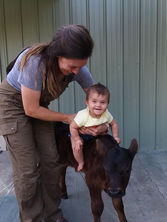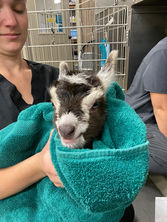 |  |
|---|
EMERGENCIES
TRVS POLICY
Hello to all our wonderful clients, old and new! We would like to let everyone know about our after-hours emergency services and our policy regarding this service.
We are no longer offering after-hours emergency services, but we will continue to offer emergency services during our business hours. If you need emergency care after hours, we have listed the closest emergency care facilities available.
Active as of September 2022 as listed on our Facebook page & website.
Please contact facility prior to travel and/or arrival
Please refer to their website for most accurate information & policies.
NO SHOWS
TRVS POLICY
We would like to let discuss our appointment & no show policy here at TRVS.
When scheduling appointments, please ensure we have a good phone number and email address to reach you! We try to call or text you 1-2 days prior to your appointment to confirm whether you can come or need to reschedule. You can also tell us if you prefer emailed reminders!
If we schedule your appointment and you do not show up (no show), we will send you a text message with a “warning” about your no show. Once you hit 3 no shows, we will require you to leave a non-refundable $25 deposit prior to any doctor appointments you schedule with us in the future (does not include technician appointments or boarding). When you leave a deposit, that $25 goes directly towards your scheduled appointment upon arrival! If you cancel the appointment, we will move the deposit to your rescheduled appointment. ONLY IF YOU NO SHOW do we keep the deposit. Daily, we have patients that have emergencies who call and need urgent care the same day. Therefore, we want to know whether you can make your appointment, or if we can use that time slot for another pet in need!
We hope you understand and look forward to seeing you and your pets at our hospital! If you have any questions, feel free to call or email our office.
HEARTWORM
TRVS POLICY
HEARTWORM DISEASE AND ITS IMPORTANCE TO YOUR PET
What is heartworm disease?
Heartworm disease is a serious and potentially fatal disease in pets in the United States. It is caused by foot-long worms (heartworms) that live in the heart, lungs and associated blood vessels of affected pets, causing severe lung disease, heart failure and damage to other organs in the body. Heartworm disease affects dogs, cats and other mammals. The dog is a natural host for heartworms, which means that heartworms that live inside the dog mature into adults, mate and produce offspring. If untreated, their numbers can increase, and dogs have been known to harbor several hundred worms in their bodies. Heartworm disease causes lasting damage to the heart, lungs and arteries, and can affect the dog’s health and quality of life long after the parasites are gone. For this reason, prevention is by far the best option, and treatment—when needed—should be administered as early in the course of the disease as possible.
How is heartworm disease transmitted to my pet?
The mosquito plays an essential role in the heartworm life cycle. Adult female heartworms living in an infected dog produce microscopic baby worms called microfilaria that circulate in the bloodstream. When a mosquito bites and takes a blood meal from an infected animal, it picks up these baby worms, which develop and mature into “infective stage” larvae over a period of 10 to 14 days. Then, when the infected mosquito bites another dog or cat, the infective larvae are deposited onto the surface of the animal's skin and enter the new host through the mosquito’s bite wound. Once inside a new host, it takes approximately 6 months for the larvae to mature into adult heartworms. Once mature, heartworms can live for 5 to 7 years in dogs and up to 2 or 3 years in cats. Because of the longevity of these worms, each mosquito season can lead to an increasing number of worms in an infected pet.
What are the signs of heartworm disease?
In the early stages of the disease, many dogs show few symptoms or no symptoms at all. The longer the infection persists, the more likely symptoms will develop. Active dogs, dogs heavily infected with heartworms, or those with other health problems often show pronounced clinical signs. Signs of heartworm disease may include a mild persistent cough, reluctance to exercise, fatigue after moderate activity, decreased appetite, and weight loss. As heartworm disease progresses, pets may develop heart failure and the appearance of a swollen belly due to excess fluid in the abdomen. Dogs with large numbers of heartworms can develop sudden blockages of blood flow within the heart leading to a life-threatening form of cardiovascular collapse. This is called caval syndrome and is marked by a sudden onset of labored breathing, pale gums, and dark bloody or coffee-colored urine. Without prompt surgical removal of the heartworm blockage, few dogs survive.
When should my dog be tested?
All dogs should be tested annually for heartworm infection, and this can usually be done during a routine visit for preventive care. Annual testing is necessary, even when dogs are on heartworm prevention year round, to ensure that the prevention program is working. Heartworm medications are highly effective, but dogs can still become infected. If you miss just one dose of a monthly medication—or give it late—it can leave your dog unprotected. Even if you give the medication as recommended, your dog may spit out or vomit a heartworm pill—or rub off a topical medication. Heartworm preventives are highly effective, but not 100 percent effective. If you don’t get your dog test, you won’t know your dog needs treatment.
For more details about heartworm disease in your dog or cat, please visit the AHS (American Heartworm Society) and their resources for everyday questions that you may have:

























